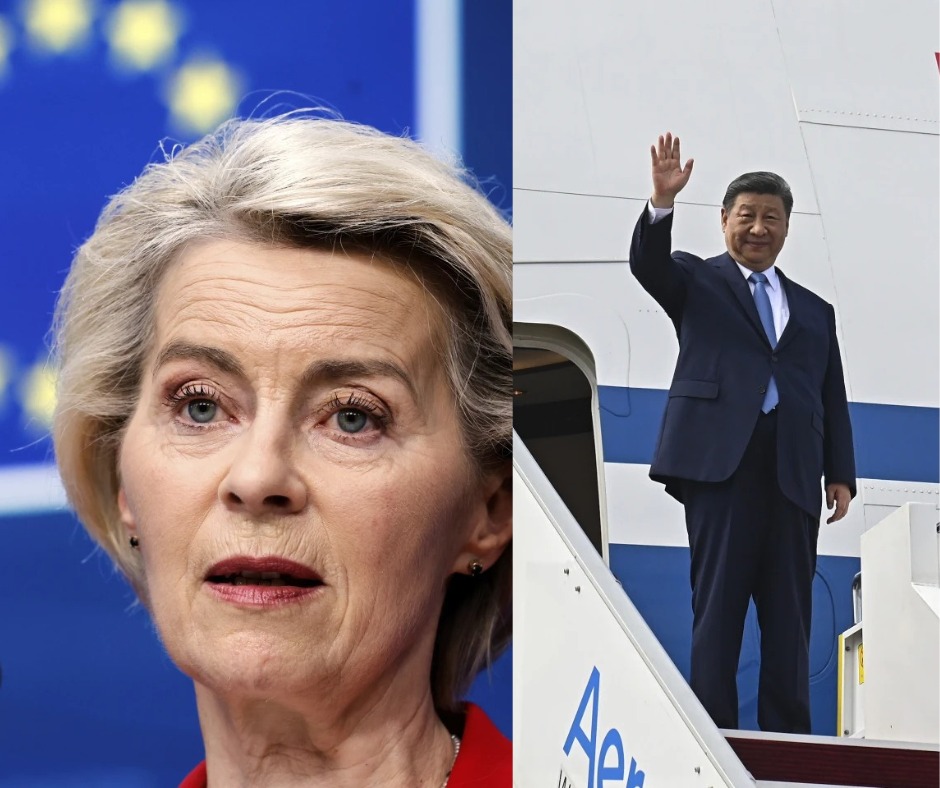European Union leaders met Chinese President Xi Jinping in Beijing on Thursday for a scaled-back summit marking 50 years of diplomatic relations, but expectations were low for concrete outcomes amid sharp disagreements over trade, Ukraine, and growing US pressure.
Originally planned as a two-day summit, the talks were reduced to one day, reflecting the limited room for consensus. European Commission President Ursula von der Leyen and European Council President António Costa met Xi and Premier Li Qiang to address economic disputes, geopolitical tensions, and climate cooperation.
Xi urged deeper China-EU cooperation and mutual trust in the face of global instability, calling on both sides to “set aside differences and seek common ground,” a phrase he often uses in foreign relations. However, European leaders pressed Beijing on its trade surplus, support for Russia, cyberattacks, industrial espionage, and human rights issues in Xinjiang, Tibet and Hong Kong.
The EU runs a €300 billion ($350 billion) annual trade deficit with China, largely due to its dependence on Chinese critical minerals and surging imports of electric vehicles. Brussels has imposed tariffs on Chinese EVs to protect European automakers, while China has retaliated with probes into EU pork and dairy exports and imposed duties on French cognac.
Beijing also criticised new EU procurement rules, including a recent ban on Chinese medical equipment in large public tenders, citing discrimination. The EU says these moves are in response to China’s legal barriers against European firms.
European companies report declining profitability in China, but analysts say the EU retains leverage as China’s largest export market. “China has every intention to keep it this way, especially given the pressure from the US,” said Alicia García-Herrero of the Bruegel think tank.
Tensions also stem from China’s close ties with Russia. Beijing remains a major buyer of Russian oil and gas and a supplier of key technologies, despite EU sanctions. The latest EU sanctions even target Chinese firms accused of aiding Russia’s war effort, prompting Beijing to protest and threaten retaliatory measures.
Meanwhile, the EU is wary of appearing too close to China, particularly as it faces potential US tariffs under President Donald Trump. “Europe is being very careful not to antagonise Trump further,” said Fabian Zuleeg of the European Policy Center. “It will be hard to achieve something concrete.”
China, emboldened by its trade standoff with the US, has shown little interest in concessions. “Now that Trump has backed down, China sees less need to woo Europe,” said Noah Barkin of the Rhodium Group.
While both sides acknowledge shared climate goals and economic ties—China is the EU’s second-largest trading partner—disputes over EVs, raw materials, and sanctions continue to overshadow cooperation.
Amid limited progress with Beijing and rising US-China rivalry, the EU is strengthening ties elsewhere. Von der Leyen recently visited Tokyo, praising Japan as a “like-minded partner” in a world where “protectionist instincts grow, weaknesses are weaponized, and dependencies exploited.” Japan has made EU ties a key pillar of its 2025 defence strategy.


